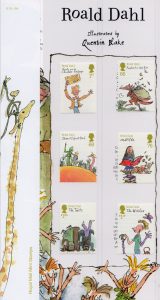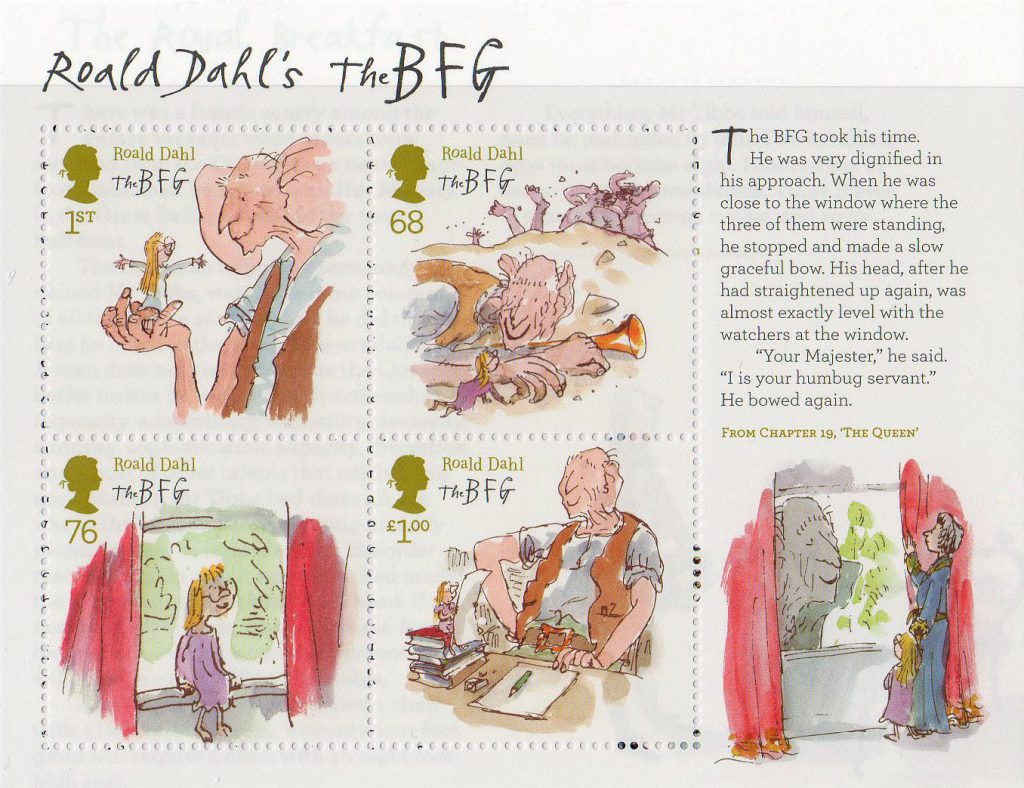While it was recently revealed Britain’s millennium-old Royal Mint decided against celebrating iconic writer Roald Dahl in 2014, two years earlier, a 10-stamp set was issued by Royal Mail.
A proposed coin featuring Dahl, whose books have sold more than 250 million copies worldwide, was rejected by the Royal Mint amid concerns about the author’s apparent antisemitic beliefs. The mint’s advisory sub-committee was discussing the coin to mark the centenary of Dahl’s birth in 2014, when it was decided he’s “not regarded as an author of the highest reputation,” according to a report from The Guardian, which obtained official mint documents late last year.
“The themes set out below were considered but not recommended,” reads the meeting minutes as reported by The Guardian.
“Associated with antisemitism and not regarded as an author of the highest reputation.”

Two years after Britain’s postal service issued its Dahl stamps, the Royal Mint decided against celebrating the allegedly antisemitic author.
‘ANTI-ISRAEL’ REMARKS
While Dahl is one of the world’s best-selling authors, a collection of antisemitic remarks he made in the decade leading up to his 1990 death sullied his centennial celebration.
In 1983, Dahl was reviewing God Cried, a picture book by Tony Clifton about the Israeli siege of West Beirut during the 1982 Lebanon War, when he wrote the book would make readers “violently anti-Israeli.”
“I am not anti-Semitic,” he added. “I am anti-Israel.”
Also in 1983, amid increased criticism about the Israeli invasion of Lebanon, Dahl told the New Statesman: “There is a trait in the Jewish character that does provoke animosity, maybe it’s a kind of lack of generosity towards non-Jews. I mean, there’s always a reason why anti-anything crops up anywhere; even a stinker like Hitler didn’t just pick on them for no reason.”
Months before his death on Nov. 23, 1990, Dahl further explained his “anti-Israel” beliefs in an interview with The Independent.
“It began in 1982 when the Israelis invaded Lebanon. They killed 22,000 civilians when they bombed Beirut. It was very much hushed up in the newspapers because they are primarily Jewish-owned. I’m certainly anti-Israeli and I’ve become antisemitic in as much as that you get a Jewish person in another country like England strongly supporting Zionism,” he said.
“I think they should see both sides. It’s the same old thing: we all know about Jews and the rest of it. There aren’t any non-Jewish publishers anywhere, they control the media – jolly clever thing to do – that’s why the president of the United States has to sell all this stuff to Israel.”
RESPONSE FROM HIS PEERS

Before his death in 1990, Dahl said he was ‘certainly anti-Israeli and I’ve become antisemitic in as much as that you get a Jewish person in another country like England strongly supporting Zionism.’
Jewish philosopher Sir Isaiah Berlin, who was friends with Dahl, said the iconic children’s storyteller “might say anything—could have been pro-Arab or pro-Jew.”
“There was no consistent line. He was a man who followed whims, which meant he would blow up in one direction, so to speak.”
Other people close to Dahl believe his comments are being misinterpreted.
“This is another example of how much Dahl refused to take anything seriously, even himself,” Amelia Foster, former director of the Roald Dahl Museum and Story Centre, told Deutschlandradio, a German public radio broadcaster, in 2008.
“It was stupid of him to say such a thing; he was very angry with the Israelis. … He had a childish reaction to what was going on in Israel. Dahl wanted to provoke, as he always provoked at dinner. His publisher was a Jew, his agent was a Jew—but he liked these people, he respected them and thought only good of them. He asked me to become his manager, and I’m Jewish, too.”

